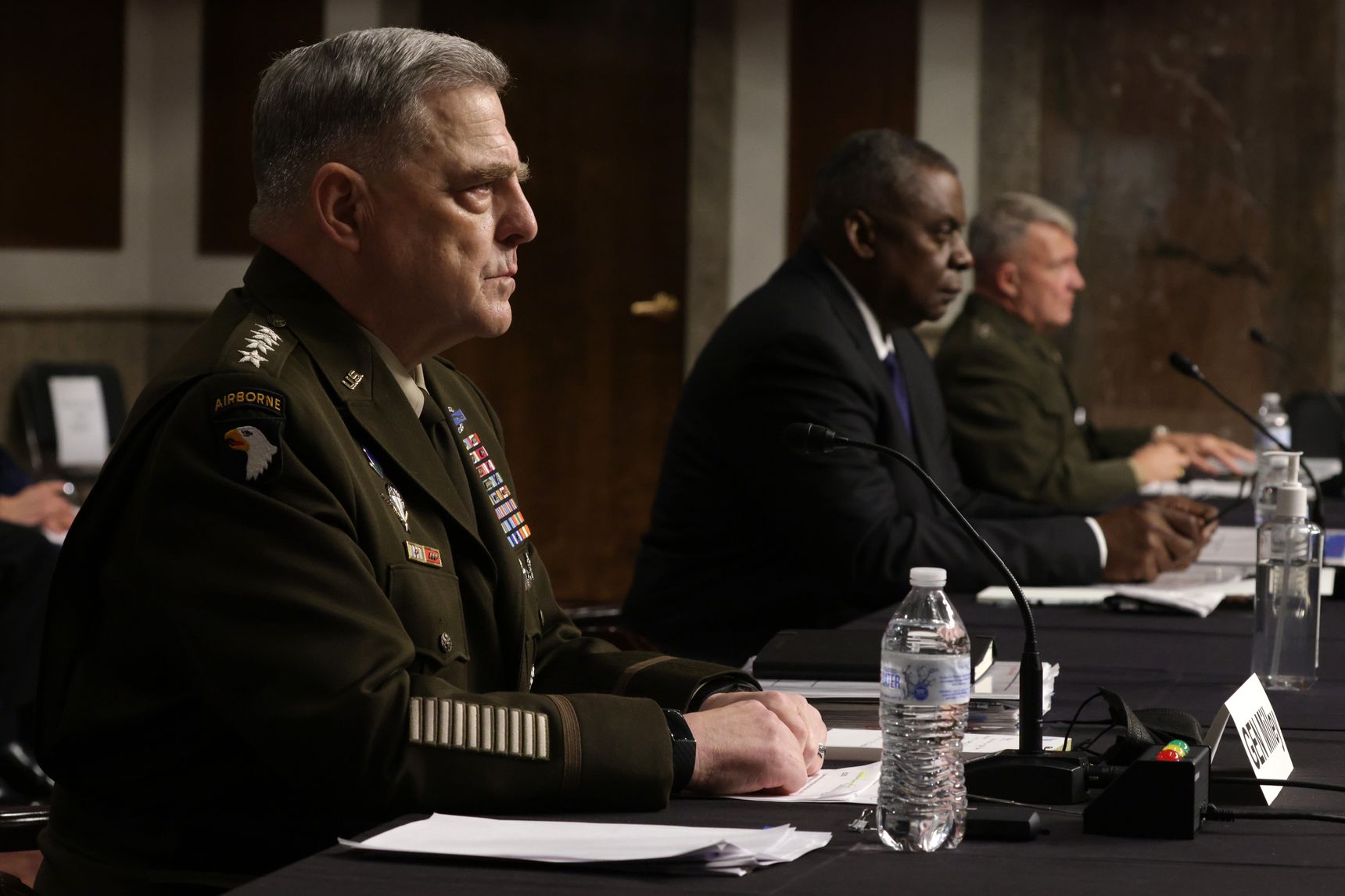By: The Editorial Board – wsj.com – September 28, 2021
President Biden hopes the political fallout from his botched Afghanistan withdrawal will fade quickly, but Tuesday’s Senate hearing with the secretary of Defense and two top generals doesn’t cast his decisions in a better light.
The hearing underscored that the President acted against the advice of the military in yanking the residual U.S. force from the country. Chairman of the Joint Chiefs of Staff Gen. Mark Milley and Gen. Kenneth McKenzie both made clear in their testimony that they recommended that about 2,500 U.S. troops stay in Afghanistan to delay a Taliban takeover.
The generals also undercut Mr. Biden’s spin about their advice as the chaotic withdrawal was underway. He said the generals unanimously supported his Aug. 31 deadline for the departure of U.S. troops. But as Gen. Milley confirmed in questioning by Sen. Tom Cotton, that advice was given on Aug. 25—10 days after the fall of Kabul to the Taliban.
Waiting that long essentially presented the generals with a fait accompli, since the Taliban were already entrenched in Kabul. It didn’t have to unfold that way. Once it became clear Kabul was going to fall in mid-August, the U.S. could have told the Taliban that it was going to secure a wide perimeter around the Kabul airport and control the city until the withdrawal of Americans and Afghan allies was complete.
That would have allowed a more orderly departure, and potentially less loss of life, even if it meant extending the Aug. 31 deadline. But Mr. Biden wanted out immediately, so he cast another rotten tactical decision as the result of military advice rather than his own willfulness.
The Administration’s sunny assurances about the impact of the withdrawal on U.S. national security were also undercut by the brass. When Sen. Mark Kelly of Arizona asked Gen. McKenzie, “are you confident that we can deny organizations like al Qaeda and ISIS the ability to use Afghanistan as a launchpad for terrorist activity?” the general said, “I would not say I am confident.”
Gen. Milley similarly called the outcome in Afghanistan a “strategic failure” as “the enemy is in charge in Kabul”—a break in tone for an Administration that has been casting the Taliban as a potential partner. He still insisted it was a “logistical success”—a dubious designation of an operation that, despite an impressive number of flights from Kabul, saw 13 U.S. deaths and a mistaken drone strike that killed 10 Afghan civilians, including seven children.
***
Gen. Milley was also in the hot seat for the reports of his actions late in the Trump years as relayed in a book by journalists Bob Woodward and Robert Costa. The book paints a picture of a general freelancing on national security during and after the 2020 election, reviewing nuclear protocols and calling his Chinese counterpart to say he’d warn him if President Trump started a war.
Gen. Milley confirmed he spoke with Mr. Woodward, as well as other journalists writing books about the last days of the Trump Administration. Yet he said his communications with China were standard practice, and he wouldn’t say whether his portrayal in the books was accurate as he hadn’t read them.
That’s a dodge. Gen. Milley has surely seen the Washington Post report on the book that portrays him as undertaking extraordinary efforts to circumvent a President. Even if that portrayal was sensationalized by the authors—as we’ve warned might be the case—it has damaged Americans’ perception of civilian control over the military.
Yet Gen. Milley didn’t take responsibility for that entirely predictable outcome any more than Mr. Biden has the consequences of his Afghanistan retreat. The Afghan withdrawal is the greatest U.S. foreign-policy humiliation in decades. The damage is made worse by the failure of accountability, starting with the Commander in Chief.
To see this article and others like it, choose to read more.
 Listen Online
Listen Online Watch Online
Watch Online Find a Station in Your Area
Find a Station in Your Area










 Listen Now
Listen Now Watch Online
Watch Online
